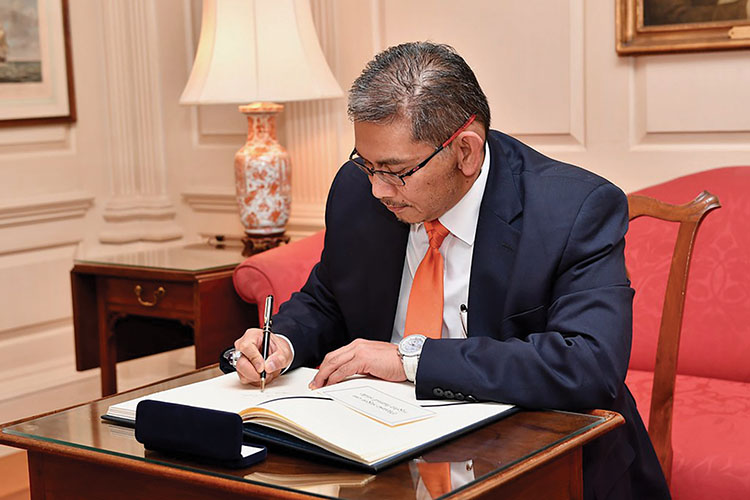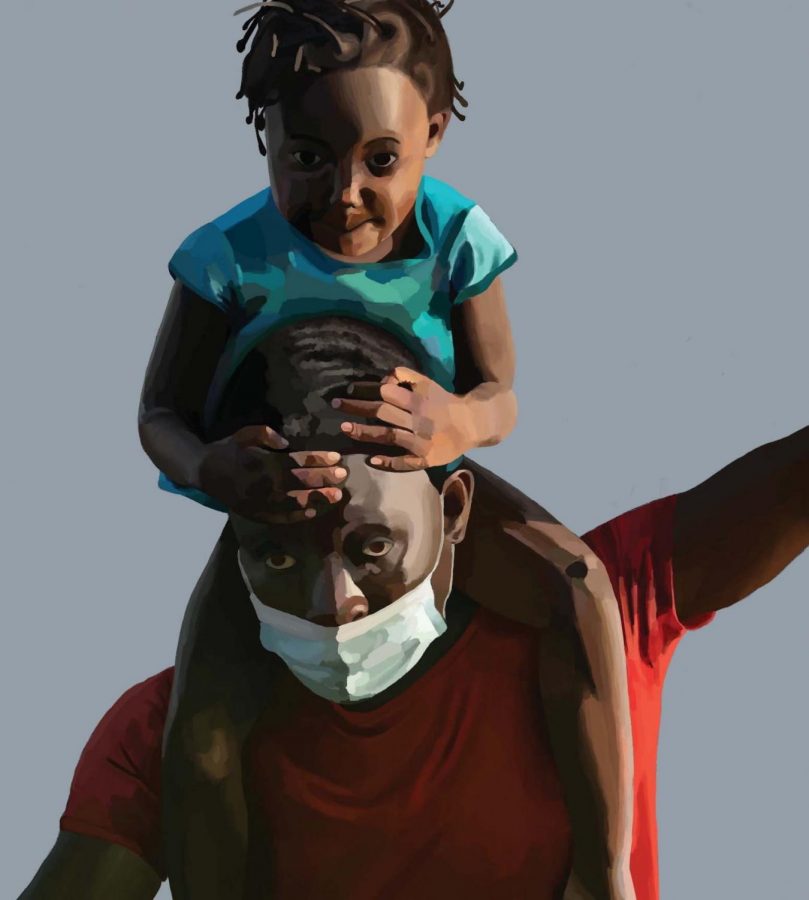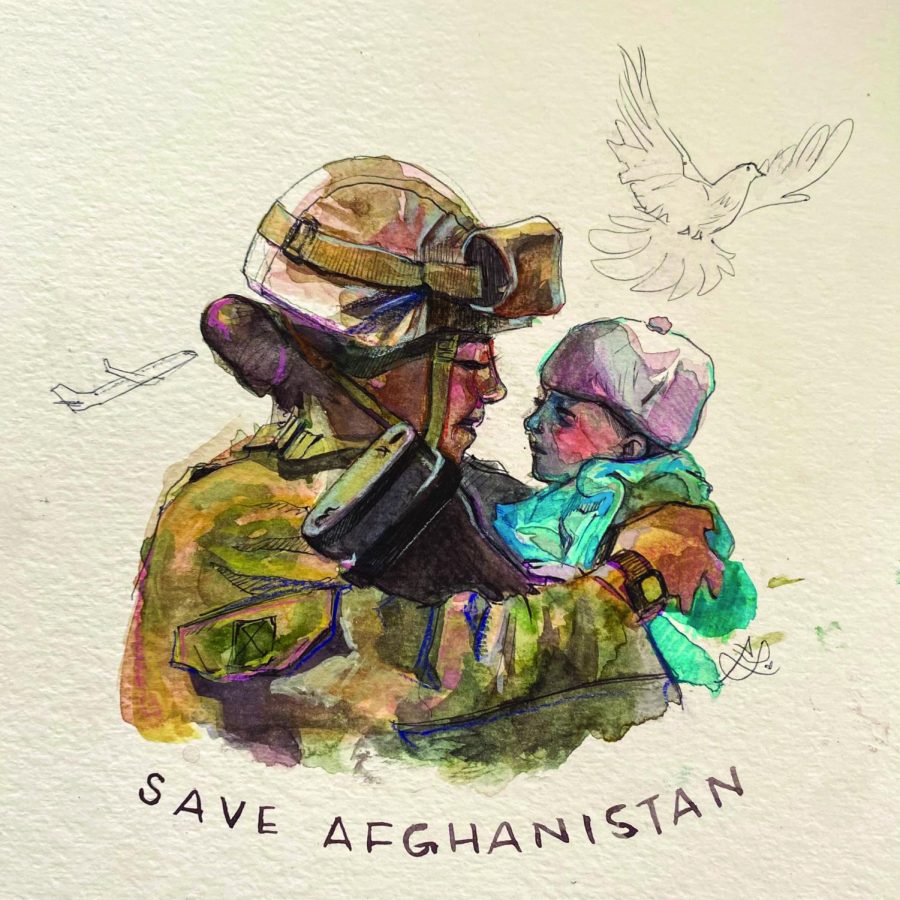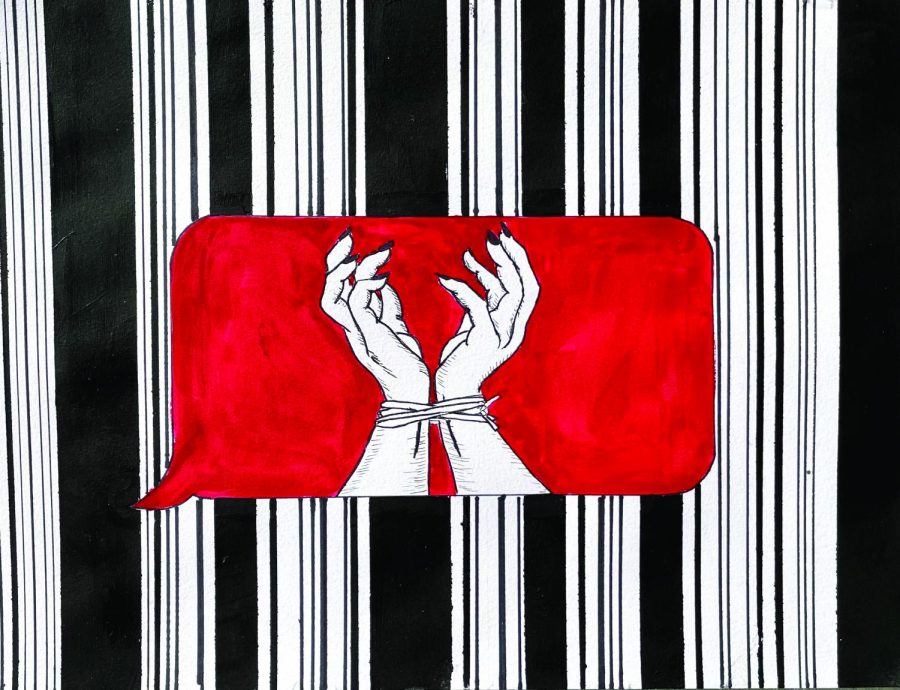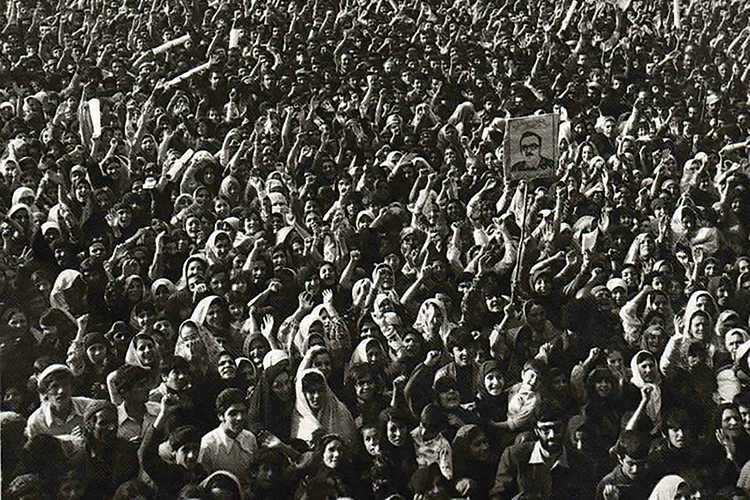//PICTURED ABOVE: Erywan Yusof, minister of foreign affairs in Brunei, signing the Department of State guestbook in Washington D.C. on June 13, 2018. Yusof defended Brunei’s new controversial laws and penalties against the LGBTQ+, supporting the new legislature as in line with Brunei’s traditions and culture.
Over time, especially the last ten years, LGBTQ+ rights have increased thanks to the tireless work of activists. Although there is much still to be accomplished, LGBT+ rights have been slowly increasing, despite occasional setbacks and still ever-present danger.
However, one country has recently taken a step back in terms of LGBT+ rights.
On April 3, 2019, Brunei introduced strict new laws based in Sharia law including stoning to death and amputation. Brunei, a small sultanate on the island of Borneo in Southeast Asia with around 430,000 citizens, is a nation with Sunni Islam as its national religion. The new laws and penalties originate from a strict interpretation of Sharia law, which is an Islamic set of religious principles meant to be followed as law. Among the new laws and penalties, the penalty for gay sexual activity is stoning to death, while the penalty for lesbian sex is either 40 strikes from the cane or up to 10 years in jail, or both. While homosexuality has been illegal in Brunei for years, this new legislation could put citizens to death for gay activity.
Amidst controversy and denouncement by the United Nations and international rights groups, Erywan Yusof, the minister of foreign affairs in Brunei, defended the new laws by stating that they are meant as a deterrent and means to educate, as well as arguing that the new penal codes fit human rights standards internationally.
“Its aim is to educate, deter, rehabilitate and nurture rather than to punish,” Yusof wrote in a letter addressing United Nations rights officials. He also wrote that, “It seeks to strike the right balance between protecting the rights of the accused person and the rights of the victims and their families.” Yusof does not specify who are considered victims under Brunei’s new laws, also defending the laws by stating that they focus “more on prevention than punishment.”
Leaders of Brunei also defend the laws by arguing that the punishments follow both cultural and religious traditions in Brunei.
In response, Amnesty International, a non-governmental organization that focuses on human rights, said it was “callous and reckless” for Brunei to call these measures preventative. Although Brunei announced the new penalties six years ago, international outrage delayed implementation until now. This delay did not stop outrage over the new laws as various government officials, public figures, and general citizens protest these laws.
Human rights’ groups, like Human Rights Watch, have vocally opposed the new laws’ implementation. Nirvana Khan, a junior at Hockaday, believes it is important for Americans to remain informed about these new laws.
“I think it was a reminder because sometimes in the United States we get complacent and assume that the world is as progressive as us when it comes to LGBT+ rights,” Khan said. “It’s a reminder that, in many parts of the world, people don’t have the same rights as they do in the United States and that activism is still important.”
“Things are actually getting more dangerous for LGBT+ people around the world,” Khan said. As Khan says, LGBT+ rights still have a long way to go around the world. Ten other countries besides Brunei also have Sharia laws implemented with potential death by stoning for homosexuality.
Beyond laws, conditions for LGBT+ people around the world are often dangerous and deadly, like with the gay purges ongoing in Chechnya where Chechen Republic authorities target people suspected of being on the LGBT+ spectrum and abduct, imprison or torture them.
Crimes against minorities also remain underreported. In a special report from the U.S. Department of Justice published in June 2017, around 54 percent of hate crimes targeting minorities were not reported to police between the years 2011 and 2015 alone. This affects news coverage of crime against the LGBT+ community, as well as anti-LGBT legislation coming into effect, much like Brunei’s new laws.
Hollie Teague, a teacher at the Hockaday School, believes that there has not been enough news coverage of Brunei’s new laws from mainstream news sources.
“As Americans, we are just not informed enough about what’s going on in other countries,” Teague said. “There’s also not enough coverage of minority populations, period.”
In fact, Khan first heard of the new laws in Brunei through social media, rather than official news sources. Many celebrities like Ellen DeGeneres, George Clooney and Elton John, have vocally opposed the new anti-LGBT+ laws in Brunei and have called for a boycott of the Dorchester Collection of luxury hotels. This collection is owned by the Brunei Investment Agency. This is not the first boycott of the Dorchester Collection hotels, as boycotts hit these hotels in 2014 and again in 2016 due to Brunei’s government pushing controversial anti-LGBT+ agendas.
David Doyle, professor of Gender and Sexuality in the United States at Southern Methodist University, believes celebrities using their platform to raise awareness of this issue is important, so long as they are conscientious about what they say.
“I think it’s good as long as [the celebrities] are being careful,” Doyle said. “Without enough thought, or without enough understanding of the context of the country, they might create a backlash. I think putting sunlight on these laws is important, but it has to be done carefully.”
“In terms of rights and equality, things are sometimes moving backwards, not forwards, so we need to be aware of that and not too celebratory and satisfied,” Doyle said. This is part of why it is so important for United States citizens to be informed about the law and events similar to Brunei’s new laws around the world. Regarding this, Doyle brought up a quote that most likely comes from writer and philosopher George Santayana: “Those who do not learn history are doomed to repeat it.”
In reaction to the implementation of these new laws, many American citizens, most of whom do
not frequent luxury hotels, have searched for ways they can protest Brunei’s new laws. Some, like Khan, Teague and Doyle, believe that staying informed and being vocal is a way to do so if one wants to protest and resist anti-LGBT events and legislature.
“We need to mobilize our own government to do something,” said Teague. “Writing Congress, petitioning, and letting our government know that, if they want to represent us and our values, this is the way to do it.”
Story by Catherine Sigurdsson
Photo provided by Flickr user U.S. Department of State

